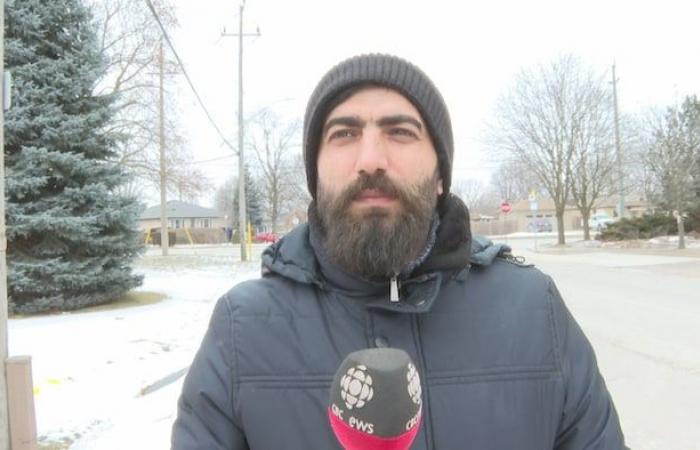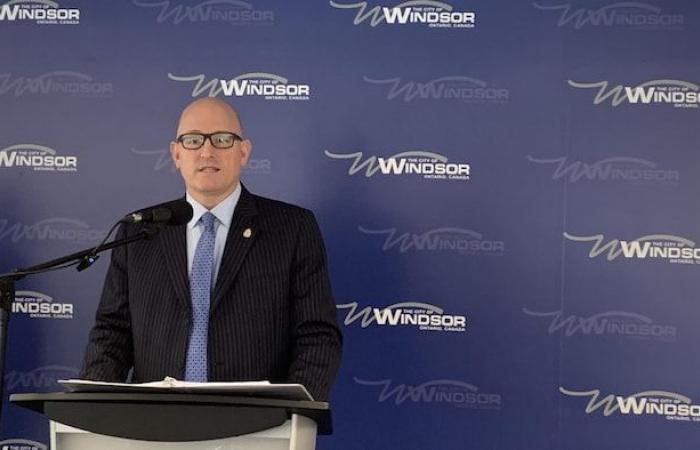The City of Windsor fears that hundreds of asylum seekers housed in hotels could find themselves on the streets in the coming weeks.
According to the mayor Drew DilkensImmigration, Refugees and Citizenship Canada (IRCC) has notified asylum seekers who are staying in two hotels selected by the federal agency to accommodate them of the end of their accommodation support.
- met with around ten of them who confirmed the decision toIRCC. However, none agreed to grant us an interview.
Nearly 200 of them were expected to leave the hotel by January 15. All have left the region or found housing, according to the City.
More than 650 asylum seekers will have to leave their hotels by March 3, and according to the City, only around fifty of them have found accommodation.
According to the mayor of Windsor, the leases signed by the federal government with these two hotels end on March 31, and IRCC would not intend to renew them.
At the time of publishing these lines, IRCC did not respond to our questions regarding this decision.
Housing asylum seekers
The City of Windsor fears that these people will end up on the street and put pressure on the City’s emergency housing resources, which are already very strained due to the increase in homelessness in recent months. and in the Windsor rental market.
According to Andrew Hencehead of Health Services for the City of Windsor, some refugees have been staying at the hotel for a year or more and have found work.
IRCC mentions that it is time for them to leave the hotel, that they have been accommodated long enough, and that it is up to them to find their own accommodation
he explains.
This is the case of Mohamed Hamiran asylum seeker met by CBC in front of one of the two hotels retained by IRCC. Originally from Lebanon, he has been staying in the hotel for eight months and must leave on February 1st.
It’s hard to leave the hotel because I’ve been here for a long time. I’m looking for work, but it’s hard for newcomers to find it
he says.
He says he has found an apartment in Windsor where he can stay with his family.
Open in full screen mode
Mohamed Hamir, an asylum seeker from Lebanon.
Photo : - / Christopher Ensing
Who is responsible for paying?
Drew Dilkens also accuses the federal government of avoiding its responsibilities regarding the financial support that asylum seekers receive while their files are processed by IRCC.
-He denounced at a press conference the changes made by IRCC last December in the terms of a federal program to help provinces and municipalities meet the costs of housing asylum seekers.
Open in full screen mode
Windsor Mayor Drew Dilkens.
Photo : - / Gabriel Nikundana
According to him, Ottawa wants municipalities and provinces to contribute to the program over the next two years and intends to give them full financial responsibility for supporting asylum seekers by 2027.
This isn’t about immigration, or not supporting immigration, it’s about who should pay for resources to help asylum seekers
insisted the mayor at a press conference on Wednesday.
The federal government is clearly failing in its duties.
The elected official was also very critical of Justin Trudeau’s government, accusing it of having screwed up
the immigration system in Canada.
We are experiencing the concrete impacts of this failure
supports Drew Dilkens.
The mayor also accuses the federal government’s migration policies of being at the origin of housing problems and difficulties in the health network.
The system did not have the capacity to absorb such a large number of people who settled in the country
says the mayor Dilkens.
Establishing a link between the housing crisis and immigration, however, requires nuances. According to David Hulchanski, professor specializing in housing and community development at the University of Toronto, it is certain categories of immigrants who add demographic pressure on access to housing. He points in particular to the significant influx of foreign students in recent years.
This is why Ottawa established a two-year cap on foreign students last year.
At the time of publishing these lines, the federal MP for Windsor—Tecumseh, the Liberal Irek Kusmierczyk did not respond to CBC’s request for an interview.
With the collaboration of Gabriel Nikundana and Christopher Ensing de CBC







